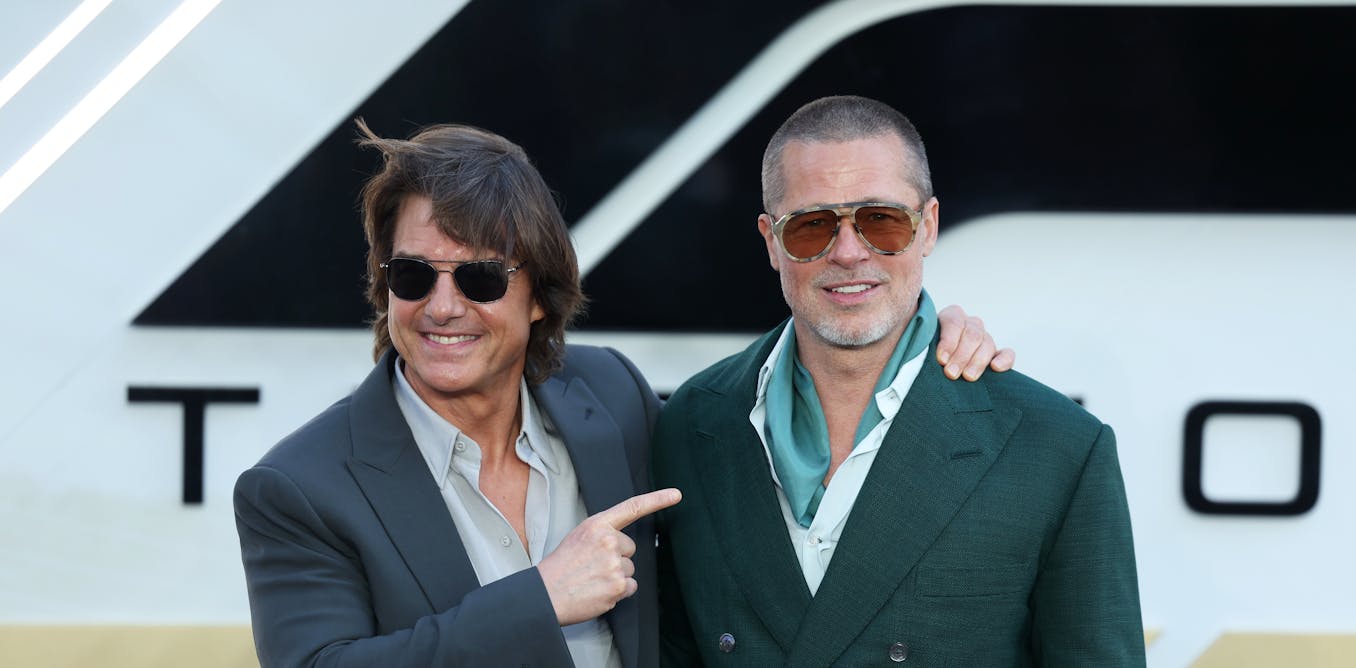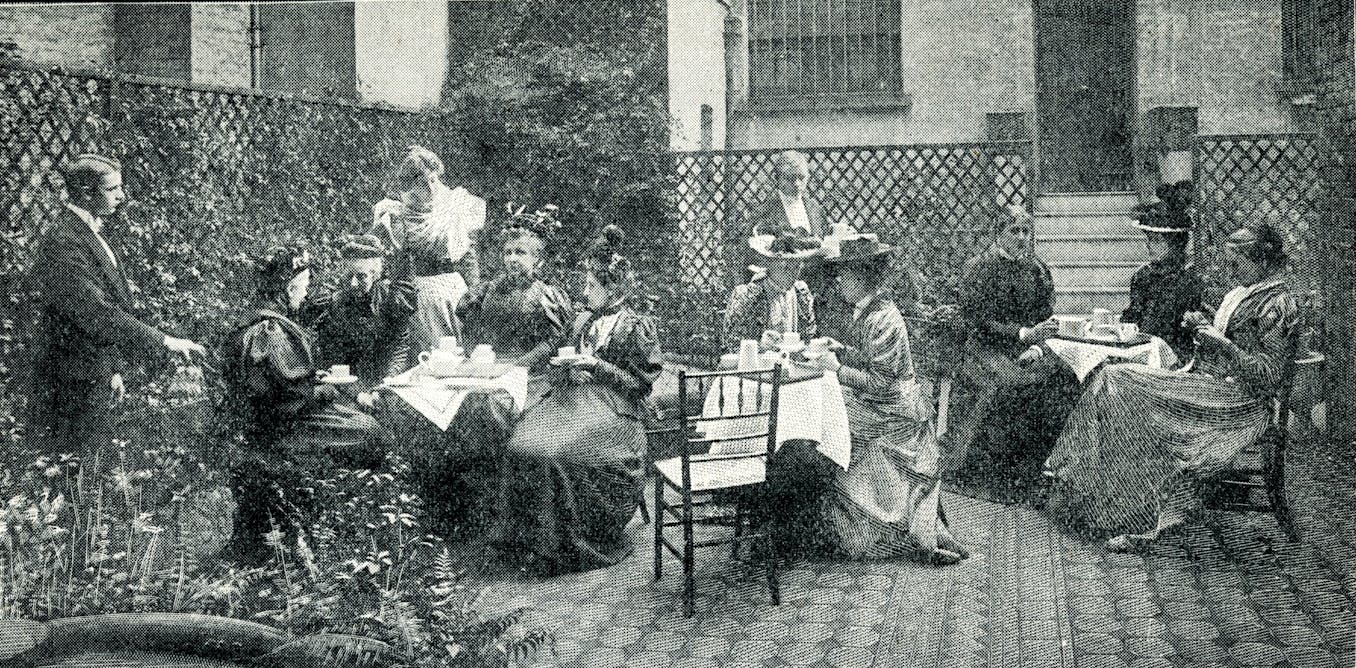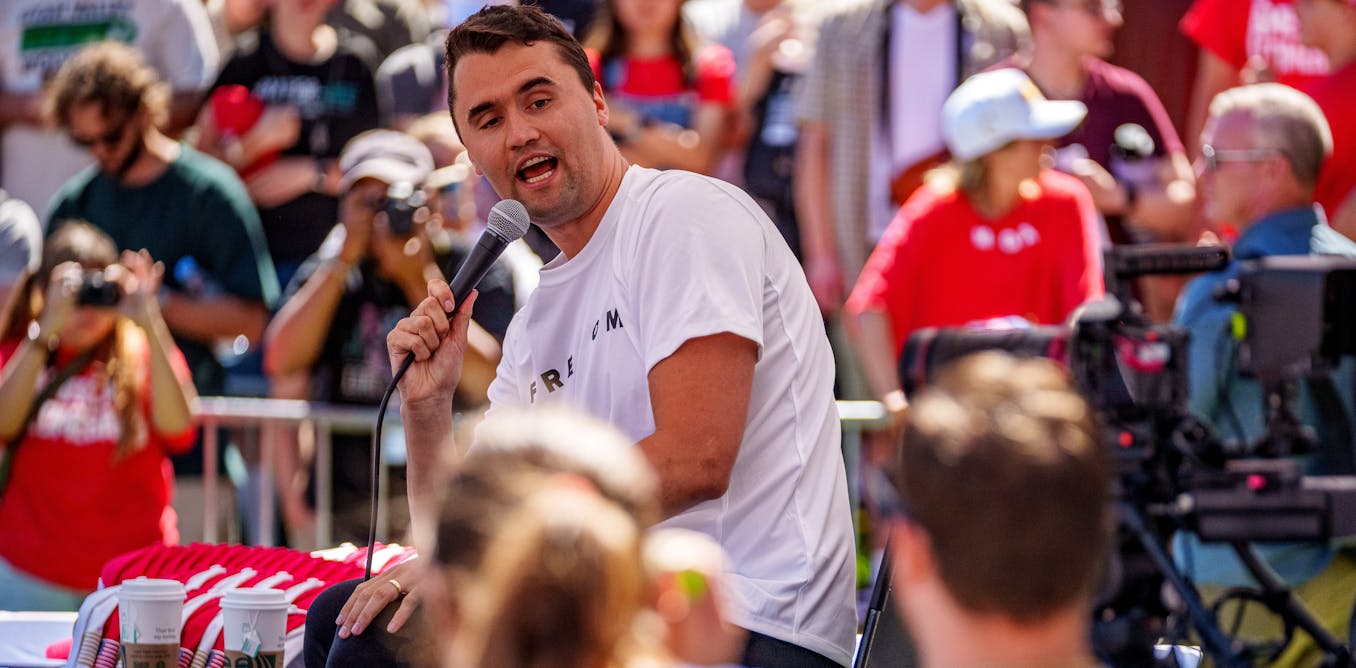Last month, actor Brad Pitt stepped onto the Formula One circuit as the leading man of the high-octane film F1, backed by Apple Studios, Jerry Bruckheimer Films and Pitt’s own Plan B Entertainment.
During the publicity campaign, cameras followed Pitt at every twist and turn, beaming his heartthrob persona to audiences. The coverage was gushing, with few mentions of the 2016 allegations of physical and emotional abuse made by Angelina Jolie, the award-winning actor and Pitt’s former partner.
Pitt was never charged over these allegations, but he was under considerable public scrutiny when they first came to light.
The tone has since shifted. Now, many media outlets are focused on Pitt’s clothing, describing him as looking “effortlessly iconic” and someone who is “just trying to have fun with his style” – a seemingly polished return to the limelight.
Pitt is far from an exception. He is part of a well-established pattern of powerful men in Hollywood who rebound from scandal quickly, and with seemingly little repercussion.
Pitt’s career trajectory, bolstered by critical acclaim and PR campaigns, reveals how easily the public memory can be rewritten.
How the media protects accused men
One 2019 study that looked at coverage of rape allegations against Portuguese footballer Cristiano Ronaldo highlighted how the media helps construct narratives that favour the accused. The allegations came from American woman Kathryn Mayorga, who accused Ronaldo of raping her in 2009.
The study found Portuguese media and political leaders largely defended Ronaldo, hailing him as a “national hero”. They focused on his career and presumption of innocence, while minimising and discrediting Mayorga’s account.
When Mayorga reopened the case in 2018, alleging coercion into an earlier settlement, the coverage stereotyped her as a “gold digger”, diverting attention away from the issue of sexual violence. Reports also emphasised “collateral damages”, such as Ronaldo’s club avoiding matches in the United States.
These findings underscore how the “celebrity halo” can compromise serious coverage of allegations.
According to Karen Boyle, gender studies professor and author of the 2018 book #MeToo, Weinstein and Feminism, mainstream media and celebrity culture systemically protect powerful men accused of violence against women.
Celebrity culture is fundamentally patriarchal, Boyle argues, and will centre men even when they’re found to be perpetrators. She writes:
Even when these men fall, they fall spectacularly, with all eyes on them […] Their stories dominate.
Instead of drawing attention to female survivors, media narratives orbit around the accused celebrity – including their downfall, legacy and potential redemption.
The machinery of ‘redemption’
The post-#MeToo era promised a reckoning. Survivors were to be heard, and powerful men held accountable. Yet the cultural reset hasn’t been what many supporters of the movement hoped for.
Boyle argues we must understand #MeToo in relation to an ongoing history of popular misogyny which normalises men’s abuse of women.
The #MeToo movement has faced mounting backlash since it went viral in 2017. Articles in Vox and Dame Magazine highlight how public sympathy is increasingly shifting towards accused men, recasting them as victims of “cancel culture” while sidelining survivors.
Online platforms such as Instagram, Reddit and Youtbe have also created space for public commentators to blame victim-survivors and make excuses for famous male perpetrators.
And it’s not just about attraction-leniency theory, wherein physically attractive people are judged more favourably. It’s also about race.
One 2015 study found media coverage of intimate partner violence by celebrity men was more likely to be portrayed as “criminal” when the man was black.
“Reports are more likely to include excuses for men’s violence against women when the coverage is of a white celebrity than when the celebrity is black,” said the author Joanna Pepin.
White men in Hollywood accumulate prestige, status and connections that operate like currency, buffering them from consequences that would derail the careers of others.
Ideology, power and coercive control
As a scholar who has been analysing coercive control for more than ten years, I argue power operates not just through institutions, but through discourse: through who gets to speak, who is believed, what is remembered, and what is erased.
Belief is often unconscious. The public may know violence occurred, but still act as though it didn’t. People choose to forget, to preserve the comforting fiction their favourite heartthrob is a good man.
My research argues coercive control isn’t limited to perpetrators of domestic violence, but is a widespread tactic employed by high-profile men to assert power and dominance.
It operates like a modern panopticon. Powerful men can use gendered power and social status to not only trap and discipline victims within an invisible prison, but can extend this control to entire communities.
Importantly, this control can be subtle. It is often hidden behind performative niceness – hard to see and harder to prosecute.
Shifting the lens
Gender studies scholar Judith Butler argues Trump-era politics have actively distorted public conversations about gender, power and accountability. They explain in one interview:
What we’re seeing with the Trump administration is a normalisation of hatred, of xenophobia, masculinity and misogyny that emboldens far-right groups and legitimises violence against vulnerable populations.
Moving forward, we need to collectively recognise how media narratives can contribute to our collective amnesia of violence against women.
We also need to prioritise teaching younger generations about masculine culture and the dangers of gendered violence. And when survivors speak, the focus shouldn’t be on whether they seem “credible” or “emotional enough”, but on the structures that may embolden the men they are accusing.

The post “why abuse allegations against powerful men like Brad Pitt are so easily forgotten” by Jamilla Rosdahl, Senior Lecturer, Australian College of Applied Psychology was published on 07/27/2025 by theconversation.com



































Leave a Reply